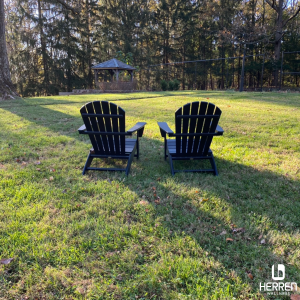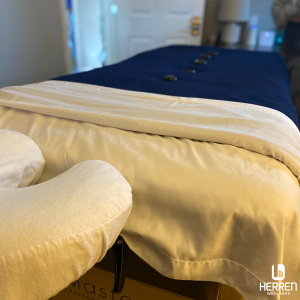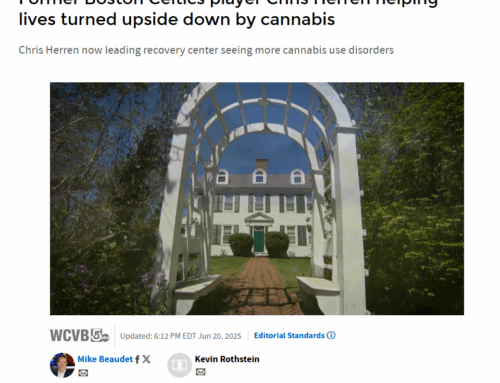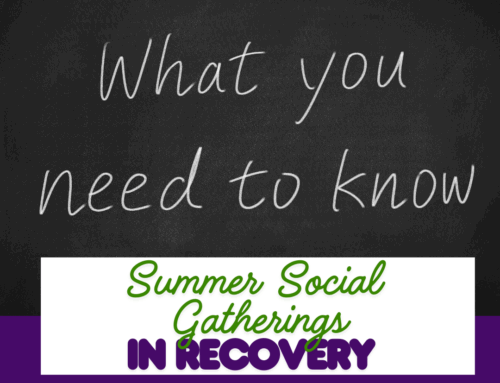
5 Tools to Manage Anxiety in Recovery
At Herren Wellness we recognize that individuals who struggle with substances oftentimes experience anxiety when entering recovery, and particularly in the early months of sobriety. A study published in the Journal of Psychiatric Services estimates that 48% of people with substance use disorders also suffer from significant anxiety.
Feeling anxious from time to time is completely normal. However, anxiety disorders can severely affect a person’s quality of life. Substances are often used to mask the underlying feelings of anxiety, and when the substances are removed those in recovery must learn new ways to cope with these uncomfortable feelings in order to achieve and maintain sobriety.
In this blog we cover healthy ways to cope with anxiety allowing you to live a full life in recovery.
1. Exercise
According to a research study published in The Journal of Clinical Psychiatry, aerobic exercises such as jogging, swimming, walking, cycling, and gardening have been proven to reduce anxiety and depression. Exercise releases endorphins to help boost a person’s mood and regulate emotions. When experiencing anxiety the body and mind are filled with pent-up energy, and exercise provides a healthy outlet, even if only done for twenty minutes a day. When done consistently, exercise has been shown to make the brain less reactive to stress, so while exercise is helpful in the short term for a mood boost, the long term effects are less anxiety overall.
2. Meditation
Anxiety typically involves thoughts of the future which are tied up in constant worry. Meditation is one of the most effective and fast ways to bring the body and mind back to the present moment where peace can be found. There are several different forms of meditation that can be practiced. A guided meditation is recommended when in the midst of intense anxiety because it will gently bring you back to the present while also replacing negative thoughts with positive and healing ones.
3. Journaling
When experiencing anxiety, the mind is clouded with thoughts and it is difficult to sift through them all. Taking out a journal and putting pen to paper can help. Writing out the anxious thoughts provides an outlet so you can take an objective look and see more clearly. Having anxiety documented can also reveal what triggers should be avoided and is a great tool to bring to therapy. Getting into the practice of journaling will give anxiety the outlet it needs to subside.
4. Grounding Techniques
Sometimes intrusive negative thoughts can become overwhelming causing one to feel out of control and unable to find any bearing. In these circumstances a quick way to return to neutral is through grounding technique. There’s the 5-4-3-2-1 method, for example. You notice five things you see around you, four things you can touch, three things you can hear, two things you can smell, and one thing you can taste. This exercise gets easier with a little practice, if it feels too overwhelming to start the most simple grounding exercise is focusing on the breath. Inhaling and counting for an extended 1-2-3-4, then slowly exhaling 1-2-3-4. This should be repeated 10 times or longer until the body and mind relax.

5. Ask for Help
One of the most important lessons learned in recovery is how to ask for help. Often help is asked for in the beginning when getting sober, however, what many people in recovery struggle to do is ask for help along the way. It is crucial when dealing with anxiety not to keep these thoughts to yourself and express them with a trusted member of your support network or a trained therapist. When anxious feelings are expressed they lose some power over you, and others can often relate to these feelings causing you to feel less alone. It is also helpful having someone you trust talk you down from an anxiety episode and guide you through relaxation techniques.
At Herren Wellness we understand that treating substance use disorder will not eliminate anxiety. That is why we work with our guests offering both clinical support and a range of holistic therapies including nutrition, massage therapy, acupuncture, meditation, physical fitness and support meetings which are all essential to the recovery process.
We believe that a life in recovery should be full, and while anxiety can happen it should not stand in the way of you experiencing the joys of a sober life. If we can help you on your journey please do not hesitate to reach out to us. We are here.

About Herren Wellness
Herren Wellness is a thriving community of people at all stages of their recovery journey. We introduce healthy habits and routines centered around emotional, physical, and spiritual wellness that provide a solid foundation for rediscovering your interests, experiencing joy in sobriety, and building structure and routine.
We provide several alumni support communities, including a weekly recovery support group, monthly alumni meeting, and online alumni community you can access anytime. Your connection to Herren Wellness doesn’t end when your stay ends; we are there for you throughout your recovery journey.
If you, or a loved one, are looking for help, please call us at (844) 443-7736, email us at info@herrenwellness.com, or fill out a contact form. You are not alone.





